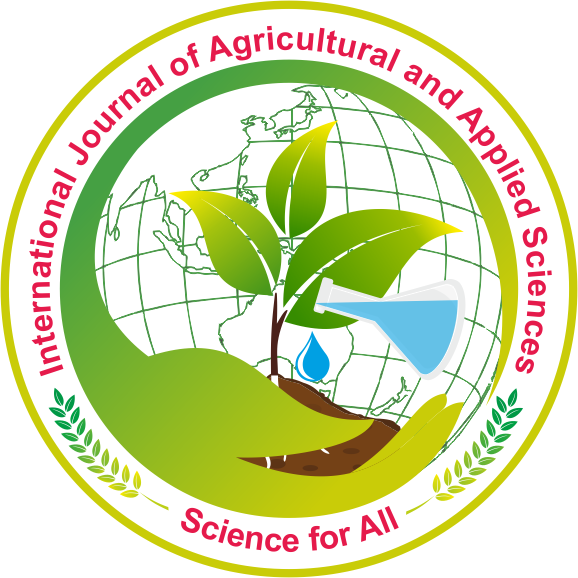Agricultural & Environmental Technology Development Society (AETDS)
International Journal of Agricultural and Applied Sciences (IJAAS)
5thInternational Conference on "Climate Change and Its Impact (CCI 2023)"

International Journal of Agricultural and Applied Sciences, December 2023, 4(2): 46-52
ISSN: 2582-8053
https://doi.org/10.52804/ijaas2023.426

Review Article
Biotic and Abiotic Stress Management under Climate Change in Sericulture
Kahkashan Qayoom, Shaista Manzoor, Aroos Rauf Rafiqui and Omais Bin Ayoub
College of Temperate Sericulture, Mirgund, Sher-e-Kashmir University of Agricultural Sciences and Technology of Kashmir, Srinagar190025, J&K-India
*Corresponding author e-mail: kehkashanqayoom@gmail.com
(Received: 15/06/2023; Revised: 30/08/2023; Accepted: 04/10/2023; Published: 20/12/2023)
ABSTRACT
Climate change threatens sustainable agriculture with its rapid and unpredictable consequences, making it more challenging for agricultural researchers and farmers to adjust to biotic and abiotic stress challenges. The combined impacts of climate, including temperature, precipitation, humidity, and other factors including soil moisture, atmospheric CO2, and tropospheric ozone (O3), will determine the potential influence of global climate change on plant-pest populations. Variations in sericulture productivity can be caused by either direct consequences of these factors at the plant level or repercussions at the system level, such as variations in insect pest prevalence. In addition to the physiological response of the impacted mulberry plant, silkworm rearing, and post-cocoon technology, as well as variations in the frequency of droughts or floods, all these factors determine how vulnerable raw silk production is to climate change. A number of researchers in the field of sericulture predicted that climate change would have a major impact on the productivity of silk, which has a direct impact on the Indian economy, was predicted by a number of researchers in the field of sericulture. The development of genotypes suited for various agro-climatic situations is essential for ensuring the long-term sustainability of the sericulture sector amid global climatic change and the impending scarcity of land and water. Transgenic revolution, tissue culture, transcriptomics, proteomics, and metabolomics in mulberry will generate advanced biotechnological cultivation technologies that will improve the sericulture industry’s economy and the quality of life of those engaged in sericulture practices.
Keywords: Climate change, Abiotic, Biotic, Stress, Mulberry, Biotechnological, Sericulture.
